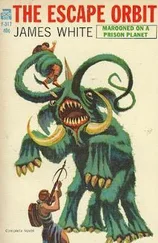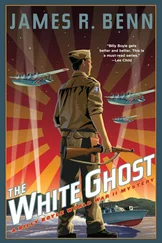“The Charge Nurse will be pleased to volunteer,” said Edanelt, its body still shaking gently. “Hredlichli, the culinary reputation of Gurronsevas throughout the Federation is such that you should feel greatly honored.”
“I feel,” said Hredlichli helplessly, “that I have just contracted a life-threatening disease.”
On Gurronsevas’ second visit to the Department of Other-Species Psychology he found the same three entities busy at their desk consoles, but in the intervening time he had discovered who as well as what they were. The Earth-human in Monitor-green uniform was Lieutenant Braithwaite, O’Mara’s principal assistant; the Sommaradvan, Cha Thrat, was an advanced trainee; and Lioren, the Tarlan, was a specialist in the uncertain area where other-species religions and psychology overlapped. This time he did not address himself to the entity possessing the highest rank, as was his custom, because all three of them might be able to help him.
“I am Chief Dietitian Gurronsevas,” he said quietly. “If it is possible I would like to obtain information and assistance with a matter requiring a high degree of confidentiality.”
“We remember you, Gurronsevas,” said Lieutenant Braithwaite, looking up. “But you have called at the wrong time. Major O’Mara is attending the monthly meeting of Diagnosticians. Can I help you, or will you make an appointment?”
“I have called at the right time,” said Gurronsevas. “It is about the Chief Psychologist that I wish to consult you, all of you, in confidence.”
There came the strange, negative sound of three entities ceasing to work. Braithwaite said, “Please go on.”
“Thank you,” Gurronsevas said, moving closer and lowering his voice. “Since I joined the hospital I have not seen the Chief Psychologist visit the main dining hall. Is O’Mara in the habit of dining alone?”
“Correct,” said Braithwaite, and smiled. “The Major rarely dines socially or in public. It is his contention that doing so might give the staff the idea that he is only human after all, with all the usual human faults and weaknesses, and that might be prejudicial to discipline.”
“I do not understand,” said Gurronsevas, after a moment’s thought. “Is there an emotional problem involved, a crisis of identity perhaps? If the Chief Psychologist does not wish to be thought of as human, to which other species does it believe itself to belong? This information, if it is not privileged and you are willing to divulge it, would greatly assist me in the preparation of suitable meals. I am assuming that the solitary eating habit is to conceal the fact that it does not eat Earth-human food.”
Cha Thrat and Lioren were making quiet sounds which did not translate and Braithwaite’s smile had widened. It said, “The Chief Psychologist is not psychologically disturbed. I’m afraid my remark — about him not wanting to appear human — suffered in translation, and misled you. But what is it that you want to know, and how exactly can we help you? You give the impression that it has something to do with the Major’s food intake.”
“It has,” said Gurronsevas. “Specifically, I would like all the information you can give me regarding its food preferences, the ordering frequency of favorite dishes, and any critical remarks the subject has made or may make about them in future.
“It is surprisingly difficult,” he went on quickly, “to gather this kind of information without attracting attention to myself and arousing comment regarding a project that should remain secret until its completion. Many entities within the hospital dine alone, either out of personal preference or because urgent professional duties make the journey to and from the dining hall too wasteful of their time. Any record of the food ordered by them is erased once the order is filled and dispatched, there being no necessity to store such information, and the only way of discovering the dishes chosen would be to intercept the original order or breach the delivery vehicle, neither of which could be done covertly. It would be much simpler if you were to give me the necessary information.”
“Unless the food chosen indicates depraved tastes, whatever that may mean in this medical madhouse,” said Lioren, speaking for the first time, “information on food preferences can scarcely be classified as a privileged communication. I see no reason for withholding such information, but why not ask the Major for it directly? Why the need for secrecy?”
Surely the need is obvious, Gurronsevas thought. Patiently he said, “As you already know, I am charged with the responsibility for improving food presentation and taste, since the quality and composition of the synthetic materials used is standard and nutritionally at optimum levels. But the introduction of changes in appearance and taste, many of them quite subtle, to large numbers of diners, has one serious disadvantage. The changes would give rise to widespread discussion and argument regarding personal preferences rather than the reasoned and detailed criticism that would be of value to me.
“Naturally,” he went on, “the testing of single members of selected species, as I have been doing with the AUGL patient One-Thirteen and Charge Nurse Hredlichli, produces useful data. But even with this method time can be wasted, albeit sometimes pleasantly, in debating culinary side-issues. I have decided, therefore, that for the best results the subject should be unaware of the test until after its conclusion.”
For a moment Lieutenant Braithwaite stared at him, its mouth open but neither speaking nor smiling, and Cha Thrat had joined in its silence. It was Lioren who spoke first.
“As a person,” it said quietly, “the Chief Psychologist is not well-beloved by anyone I know, but it is greatly respected by all. We would not wish to join in a plot to poison it.”
“Could it be,” said Braithwaite, finding its voice again, “that the pressure of responsibility and the enormity of its task has caused our Chief Dietician to develop a death wish?”
“The problem lies in my specialty,” said Gurronsevas sharply, “not yours.”
“Sorry,” Braithwaite said, “my question was not meant to be taken seriously. But you risk offending a very powerful and short-tempered entity who is unlikely to conceal any mistakes if they occur. Maybe you should think about that before you begin.”
“I have thought about it,” said Gurronsevas. “If there is confidentiality, the risk is acceptable.”
“Then we will give you what help we can,” the Lieutenant replied, “but it may not be much …”
The arrival of O’Mara’s meals was witnessed every day by one or more of the outer office staff, and the contents were enclosed in a sealed and insulated delivery float with a transparent cover. They were able to identify the meals going in and to draw conclusions from the uneaten remains coming out. Occasionally they were able to hear O’Mara criticizing a meal loudly enough for his remarks to be heard through the office door. The criticism usually included an identification of the dish that had been particularly offensive.“… So you can see,” Braithwaite ended apologetically, “that any information that we can give you will be incomplete.”
“But helpful,” said Gurronsevas. “Especially if you will agree to keep me informed regarding the Chief Psychologist’s words and reactions during and subsequent to the consumption of its meals. For the reasons already explained, I would be most grateful if your observation were of a covert nature and any behavioral changes, no matter how small, associated with the menu modifications I shall be making, were relayed to me without delay.”
“How long is the project likely to last?” asked Braithwaite. “A month? Indefinitely?”
Читать дальше

![Гарри Гаррисон - Bill, the Galactic Hero [= The Starsloggers]](/books/87536/garri-garrison-bill-the-galactic-hero-the-star-thumb.webp)










